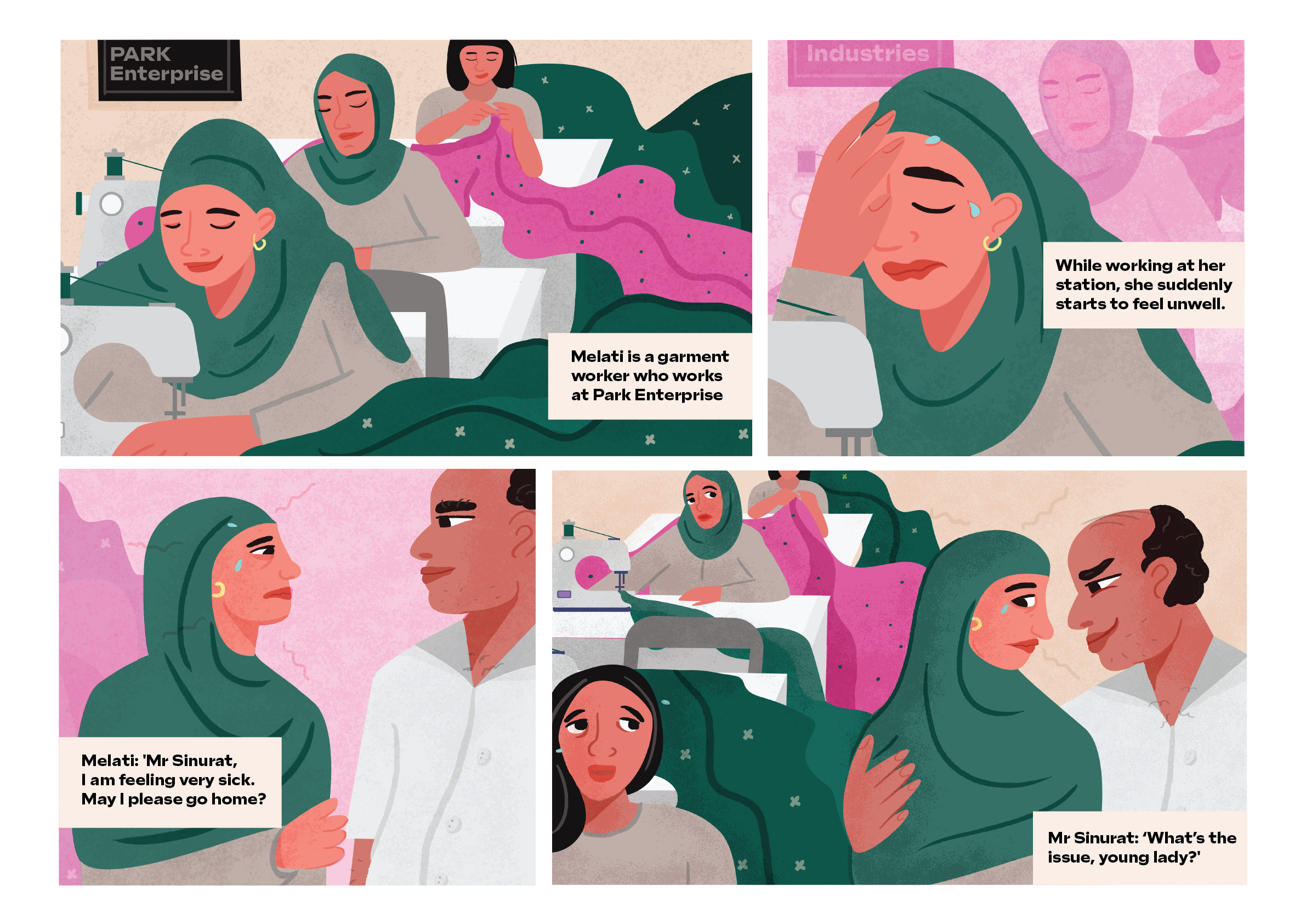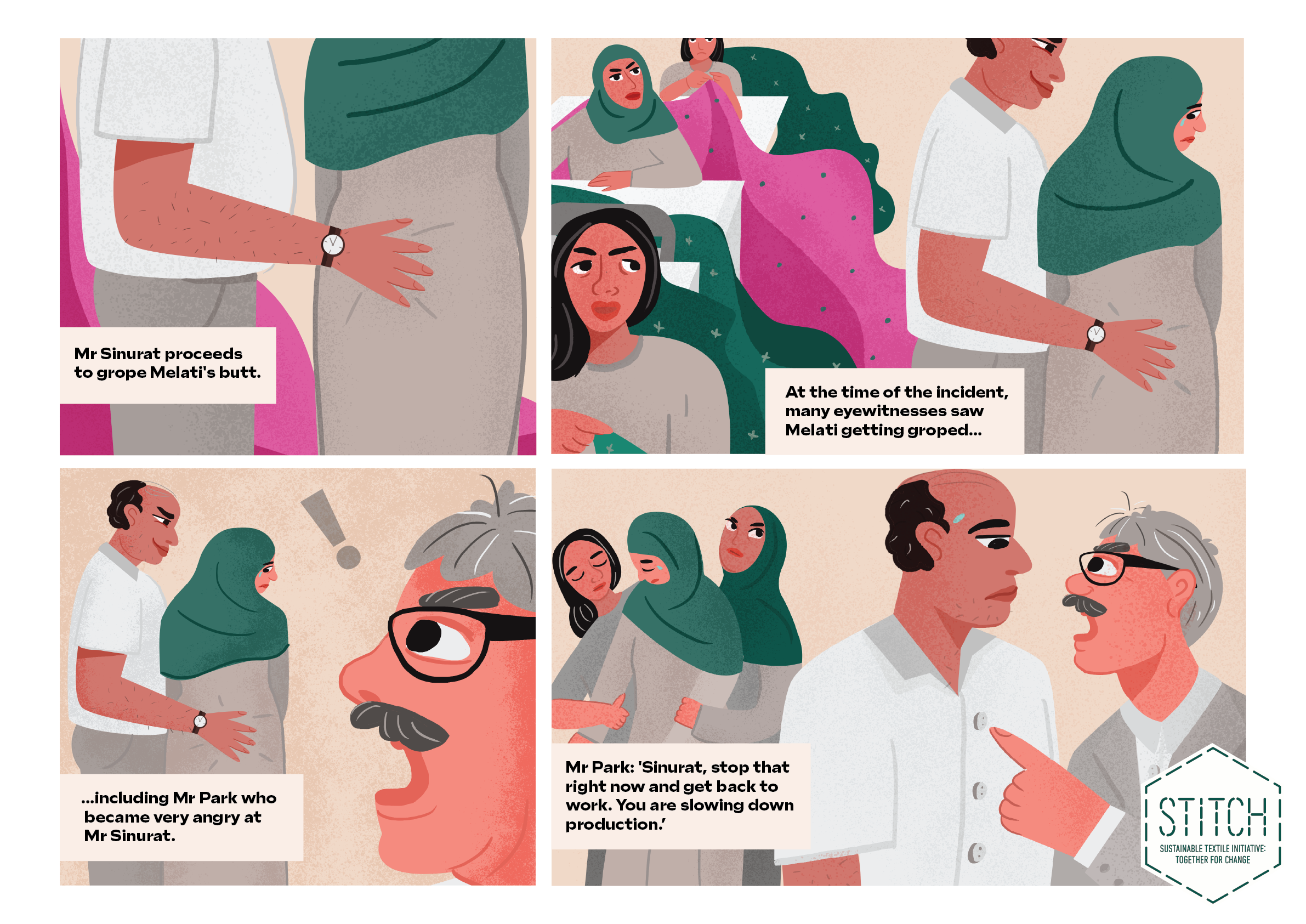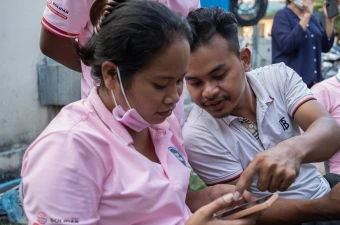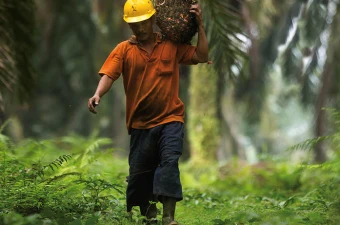Jakarta, Indonesia - In a gripping and inspiring tale of resilience and collective action by STITCH (see explanation below and on stitchpartnership.org), Melati, a young garment worker in Jakarta, Indonesia, stood up against sexual harassment in her workplace, aided by the unwavering support of her local trade union, Garteks. Melati's courageous story not only sheds light on the power of collective action in addressing gender-based violence in the global textile and garment industry but also advances Sustainable Development Goal 8 (SDG 8) and the cause of trade union freedom.
The textile and garment sector in Indonesia, which accounts for 11% of manufacturing exports and employs over 4.3 million people, remains an essential source of formal employment, particularly for women. In 2017, women constituted a staggering 82% of the total workforce in this sector. Yet, despite their numerical dominance, female workers often find themselves trapped in low-paying positions compared to their male counterparts.
Violence and harassment in the garment industry are pervasive and persistent issues that disproportionately affect women. Many female workers face daily discrimination, harassment, and violence solely because of their gender.
Garteks, CNV Internationaal’s partner trade union in the garment sector, supported by STITCH, dedicated to improving the working conditions of women garment and textile workers in Indonesia, played a crucial role in Melati's story.
At 24 years old, Melati worked at a garment factory in Jakarta and was a proud member of Garteks. Her factory was managed by a Korean Director, Mr. Park.
Melati reported harassment by her boss, Mr. Sinurat, who had worked in the garment industry for years and had managed the Park Enterprise factory for over eight years. In a pivotal moment, she reached out to Garteks, which documented the incident and reported it to the factory's management.
Through diligent negotiations, Garteks successfully incorporated new clauses related to gender-based violence and harassment into the Collective Bargaining Agreement (CBA) at the Park Enterprises factory, thereby advancing the cause of SDG 8, which promotes decent work and economic growth.
Despite initial resistance, Melati's bravery in reporting the incident, along with Garteks' unwavering support, led to Mr. Sinurat losing his job as factory manager, reinforcing the importance of trade union freedom in safeguarding workers' rights and dignity.
The Trade Union Chairman at the factory emphasized the importance of such actions, saying, "This is very important because we know that there is no regulation that protects workers from sexual harassment. So, we try so that at least they can be protected in the PKB (Collective Bargaining Agreement). We really hope that the TPKS Bill will be approved soon so that it can give us the confidence to fight similar cases."
Melati's story stands as a testament to the courage of a young woman who dared to speak up, a rarity in a world where many cases of harassment go unreported due to shame and fear. Her happiness with the outcome, after Garteks took up her complaint, demonstrates the impact that collective action can have in the fight against gender-based violence and the advancement of SDG 8.
Garteks, in recent years, has been actively engaged in conducting training on gender-based violence and harassment in the workplace, educating both management and members on advocating for labor rights when they have been violated. Melati's story is a shining example of the change that can be achieved when workers come together to fight against harassment and discrimination in the garment industry while championing the principles of SDG 8 and trade union freedom.


Sustainable Textile Initiative: Together for Change (STITCH) is a partnership with a common vision: a global textile and garment industry that contributes to an equal and just society by respecting human rights in the world of work. STITCH consists of six partners: two labour rights organisations – the Center for Development and Integration (CDI) in Vietnam and Cividep in India; two Dutch unions — CNV Internationaal and Mondiaal FNV; and two multi-stakeholder initiatives — Ethical Trading Initiative (ETI) in the UK and Fair Wear in The Netherlands.
Publication date 14 11 2023


